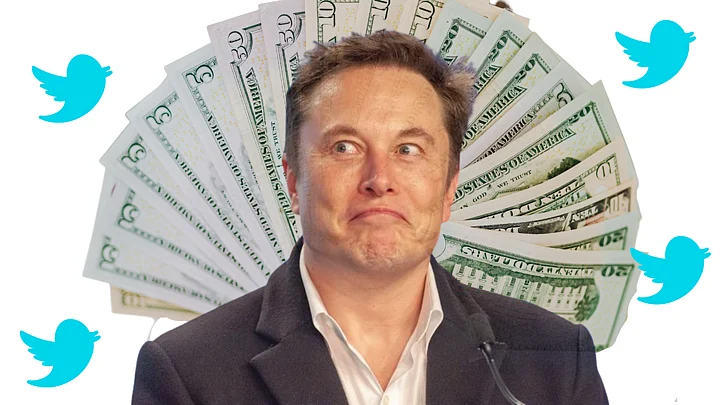On Tuesday, 17 May, Tesla CEO Elon Musk tweeted that his acquisition of Twitter "cannot move forward" until the social media platform shows proof that spam and fake accounts constitute less than five percent of its daily average users.
This comes three days after Musk said that the $44-billion deal was "temporarily on hold" while he checked the veracity of the company's claim about the amount of bots on the platform.
The tweets have sent Twitter's price tumbling, erasing all gains that were made after the acquisition was first made public.
Despite what his tweets might lead investors to believe, Musk is in a legally binding agreement that requires him to buy Twitter if closing conditions are met. This cannot be "put on hold", at least legally.
“The parties hereto will use their respective reasonable best efforts to consummate and make effective the transactions contemplated by this Agreement,” the contract specifies.
So what's Musk playing at? There is speculation that Musk is laying the groundwork to back out of the deal or renegotiate the price, but it's worth looking at the explanation he's provided first.
A 'Flawed' Sampling Process
Elon Musk's tweet on Saturday was related to Twitter's estimate in a filing that false or spam accounts represented fewer than 5 percent of its monetisable daily active users during the first quarter of 2022.
The billionaire doesn't seem to buy this. He tweeted on Sunday that he is yet to see any analysis that shows that the platform has fake accounts less than 5 percent.
He thinks that "there is some chance" that bots make up over 90 percent of Twitter's daily active users.
Musk said his team would test "a random sample of 100 followers" of the official Twitter account to figure out if its estimate was accurate. He also invited others to "repeat the same process and see what they discover."
In another tweet, Musk revealed that he picked 100 as the sample size because "that is what Twitter uses to calculate" fake accounts.
While Twitter hasn't confirmed if this is true, Musk said that the company's legal team accused him of violating a non-disclosure agreement (NDA) by revealing the sample size.
Experts, however, have pointed out the flaws with Musk's purported methodology.
Sampling 100 followers of any single account shouldn't be considered “due diligence” for making a $44 billion deal, Carl T Bergstrom, a professor at the University of Washington, told CNBC.
He said that, compared to research norms, the sample size is way too small and Musk's approach leaves him vulnerable to selection bias.
“There’s no reason to believe that followers of the official Twitter account are a representative sample of accounts on the platform. Perhaps bots are less likely to follow this account to avoid detection. Perhaps they’re more likely to follow to seem legitimate. Who knows?"Carl T Bergstrom to CNBC
"I just can’t fathom that Musk is doing anything other than trolling us with this silly sampling scheme," he added.
Christopher Bouzy, CEO of research firm BotSentinel, told CNBC that his company's analysis shows that 10 to 15 percent of accounts on Twitter are likely inauthentic.
He also said that the number of such accounts can fluctuate "in different corners of Twitter" depending on topics being discussed – controversial topics like politics and cryptocurrency attract more bots.
Facebook co-founder Dustin Moskovitz also pointed out that Musk's method isn't random enough, uses a tiny sample, and leaves room for error.
Is Musk Trying To Renegotiate?
It is important to note that even if Musk reliably proves that Twitter was wrongly estimating the percentage of fake or spam accounts, that likely won't invalidate the deal and he will still have to go through with it.
The agreement contains language that allows Musk to walk away only if Twitter’s securities filings are inaccurate enough to have a material adverse effect (MAE) on the company.
"That is an incredibly high standard: Delaware courts have almost never found an MAE," Matt Levine says in his column for Bloomberg, "there is a rule of thumb that an MAE requires a 40 percent decrease in long-term profitability."
While some have entertained the possibility that Musk could simply be trolling, others believe that Musk may be laying the groundwork for renegotiating the deal or backing out of it entirely.
His comments at a Miami tech conference on Monday point strongly towards the possibility of re-cutting the deal. He said that a viable deal at a lower price wouldn't be "out of the question," according to Bloomberg.
“Unless Twitter grossly misreported data, which would be a serious security fraud, this might be a way to either negotiate a lower price or walk away," Stefano Bonini, Stevens Institute of Technology, told Financial Times.
After Twitter and Elon Musk signed the takeover deal, tech-related stocks have dipped dramatically. The $54.20-a-share deal is significantly higher than the platform's market value and Musk might be using his tweets as a strategy to lower the price.
Some feel that the platform might just agree to a lower price, without going to court. “In our view, Musk holds all the cards here,” Nathan Anderson, founder of Hindenburg Research, told the publication.
“The board quickly agreed to the deal when conditions were vastly more favourable, and we think they’d make the right decision again when faced with the present reality.”Nathan Anderson to Financial Times
However small, there's a chance that a court could accept a material adverse effect argument against Twitter, especially if it is found to have seriously misreported some figures.
This could allow Musk to walk away from the deal entirely.
Twitter could also technically allow Musk to abandon the deal after paying $1 billion as termination fee. This might come into play if the board doesn't want to go through the hassle of suing Elon Musk.
(With inputs from Financial Times, Reuters, and Bloomberg).
(At The Quint, we question everything. Play an active role in shaping our journalism by becoming a member today.)
